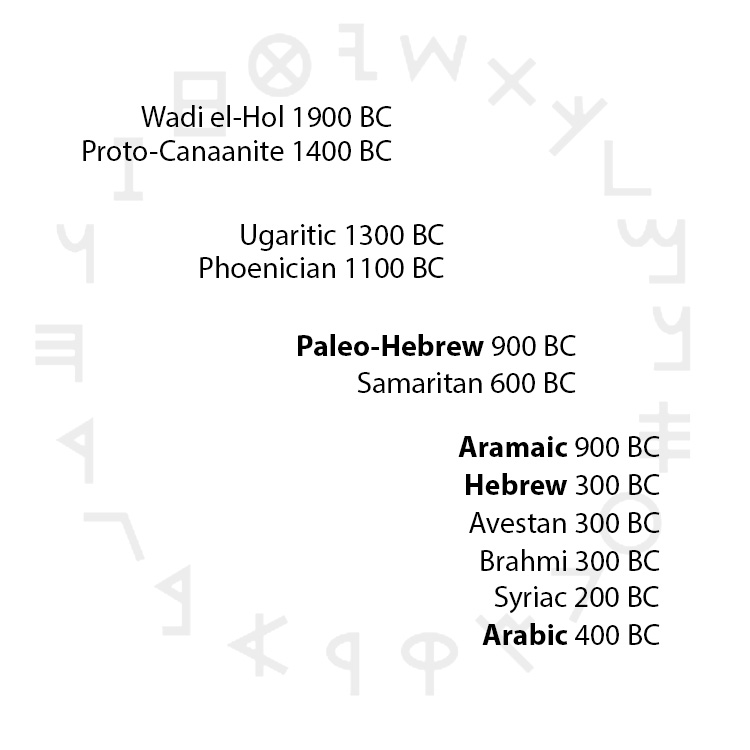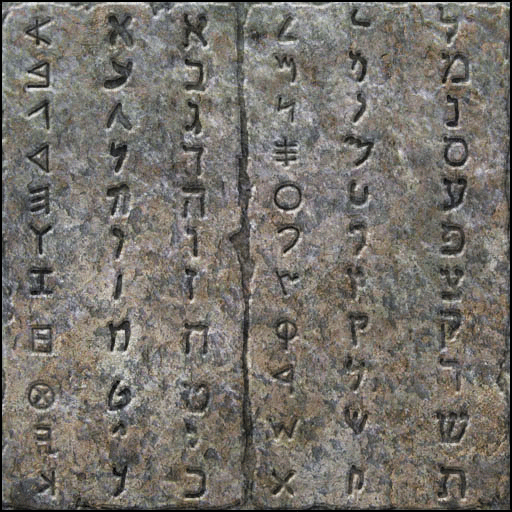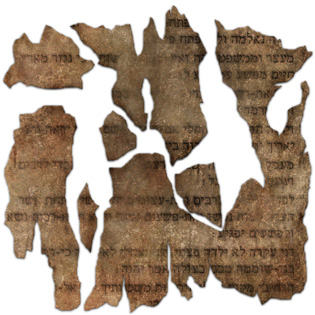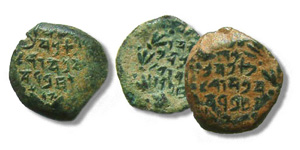|
|
Was Hebrew or Aramaic the primary language?
Was the spoken tongue of Jesus Hebrew or Aramaic? If so who cares? Believe it or not this is a topic that is greatly discussed. Here is my input based on research. First what is Hebrew and what is Aramaic and are they similar in nature, is Arabic the same as Aramaic?
Here is a History Tree of the Languages
I made an image of the 22 Letters from each language side by side with one another and also added Paleo-Hebrew with them. The First Column is Paleo-Hebrew / Aramaic / Modern Hebrew (11 on one side and 11 on the other, 22 Letters for each alphabet)
Below are the guessed ages of the alphabets which could be older. Paleo-Hebrew - 900 B.C. Aramaic - 900 B.C. Hebrew - 300 B.C.
Here are some valid points made by this source: Consistent with this, we find Jesus speaking of the “Jot” and “Tittle” of the Law in the Sermon on the Mount (Matthew 5:18). By universal consent, this refers to the text of the Hebrew Bible. Let two modern authorities suffice – one Catholic, one Protestant (Continued on Link below)
What Languages were listed Above Jesus?
There is an argument that the words here really mean it to be “Aramaic” and not “Hebrew”.
Hebraisti Εβραιστι (Strong's # 1447) Hebraikos Εβραικος (Strong's # 1444) Hebrais Εβραις (Strong's # 1446)
Luke 23:38 And a superscription also was written over him in letters of Greek, and Latin, and Hebrew, This is the King of the Jews. Hebrew - (Strong's # 1444) - Hebraikos (Epsilon/Beta/Rho/Alpha/Iota/Kappa/Omicron/Sigma)
More examples of the use of Hebrew within Greek reference:
John 5:2 Now there is at Jerusalem by the sheep [market] a pool, which is called in the Hebrew tongue Bethesda, having five porches. Hebrew - (Strong's # 1447) Hebraisti - (Epsilon/Beta/Rho/Alpha/Iota/Sigma/Tau/Iota)
John 19:13 When Pilate therefore heard that saying, he brought Jesus forth, and sat down in the judgment seat in a place that is called the Pavement, but in the Hebrew, Gabbatha. Hebrew - (Strong's # 1447) Hebraisti - (Epsilon/Beta/Rho/Alpha/Iota/Sigma/Tau/Iota)
John 19:17 And he bearing his cross went forth into a place called [the place] of a skull, which is called in the Hebrew Golgotha: Hebrew - (Strong's # 1447) Hebraisti - (Epsilon/Beta/Rho/Alpha/Iota/Sigma/Tau/Iota)
John 19:20 This title then read many of the Jews: for the place where Jesus was crucified was nigh to the city: and it was written in Hebrew, [and] Greek, [and] Latin. Hebrew - (Strong's # 1447) Hebraisti - (Epsilon/Beta/Rho/Alpha/Iota/Sigma/Tau/Iota)
Acts 21:40 And when he had given him license, Paul stood on the stairs, and beckoned with the hand unto the people. And when there was made a great silence, he spake unto [them] in the Hebrew tongue, saying, Hebrew – (Strong's # 1447) Hebraisti - (Epsilon/Beta/Rho/Alpha/Iota/Sigma/Tau/Iota)
Acts 22:2 (And when they heard that he spake in the Hebrew tongue to them, they kept the more silence: and he saith,) Hebrew – (Strong's # 1446) Hebrais - (Epsilon/Beta/Rho/Alpha/Iota/Sigma)
Acts 26:14 And when we were all fallen to the earth, I heard a voice speaking unto me, and saying in the Hebrew tongue, Saul, Saul, why persecutest thou me? [it is] hard for thee to kick against the pricks. Hebrew – (Strong's # 1446) Hebrais - (Epsilon/Beta/Rho/Alpha/Iota/Sigma)
Rev. 9:11 And they had a king over them, [which is] the angel of the bottomless pit, whose name in the Hebrew tongue [is] Abaddon, but in the Greek tongue hath [his] name Apollyon. Hebrew – (Strong's # 1447) Hebraisti - (Epsilon/Beta/Rho/Alpha/Iota/Sigma/Tau/Iota)
Rev. 16:16 And he gathered them together into a place called in the Hebrew tongue Armageddon. Hebrew – (Strong's # 1447) Hebraisti - (Epsilon/Beta/Rho/Alpha/Iota/Sigma/Tau/Iota)
Dead Sea Scrolls
(Image created by me, not real Sea Scroll)
The Dead Sea Scrolls reveal an overwhelming domination of Hebrew texts. The figure is generally accepted as around 80%, with Aramaic and Greek taking up most of the balance. The oldest copy of Isaiah was found with the Dead Sea Scrolls making it 1,000 years older than the previous known copy of the book. It was written in Hebrew not Aramaic and not Greek. Word for Word it's all still in line with the newer copies of the book that we use today. The Isaiah prophecy in fact deals with the coming of Christ and it’s nice to know that this prophecy was indeed written in Hebrew.
Dead Sea Scroll Links:
Coins from that time period provide further proof of the use of Hebrew.
The evidence provided by coins is also important in trying to evaluate the linguistic situation in the time of Yahshua. Yaakov Meshorer, curator of the Numismatic Department of the Israel Museum, and its numismatic expert, has listed 215 Jewish coins in his catalogue. Of these, 99 have Hebrew inscriptions, only one has an Aramaic inscription! From the fourth century B.C. (later Persion Period) until the end of the Bar-Cochba Revolt in 135 A.D., the entire history of Jewish coinage, only one Jewish coin, minted uring the reign of Alexander Jannaeous (103-76 B.C.) is inscribed in Aramaic."
Some quotes by people who lived more than 1,850 years ago
Papias, Bishop of Hierapolis, (150 A.D.) said: "Matthew put down the words of the Lord in the Hebrew language, and others have translated them, each as best he could." Irenaeus (120-202 A.D.) Bishop of Lions, France. "Matthew, indeed, produced his Gospel written among the Hebrews in their own dialect." Origen (c. 225 A.D.) said: "The first Gospel composed in the Hebrew language, was written by Matthew...for those who came to faith from Judaism." Eusebius, Bishop of Caesarea (c. 325 A.D.) "Matthew had first preached to the Hebrews, and when he was about to go to others also, he transmitted his Gospel in writing in his native language" (Ecclesiastical History III 24, 6).
Wikipedia on the Talmud
The Talmud (תלמוד) is considered an authoritative record of rabbinic discussions on Jewish law, Jewish ethics, customs, legends and stories. It is a fundamental source of legislation, customs, case histories and moral exhortations. The Talmud has two components, the Mishnah, and the Gemara, a discussion of the Mishnah (though the terms Talmud and Gemara are generally used interchangeably). It expands on the earlier writings in the Torah in general and in the Mishnah in particular, and is the basis for all later codes of Jewish law, and much of Rabbinic literature. The Talmud is also traditionally referred to as Shas (a Hebrew abbreviation of shishah sedarim, the "six orders" of the Mishnah).
Some items found within the Talmud:
“A father was to speak to his sons in Hebrew and to teach him the Torah. Not to do so, would be as if he had buried him.” “Four languages are of value: Greek for song, Latin for war, Aramaic for dirges, and Hebrew for speaking” “To the Jewish people, it was Hebrew that was the ‘Holy Tongue’ whereas Aramaic was seen as ‘the language of the Evil Force.’
|




